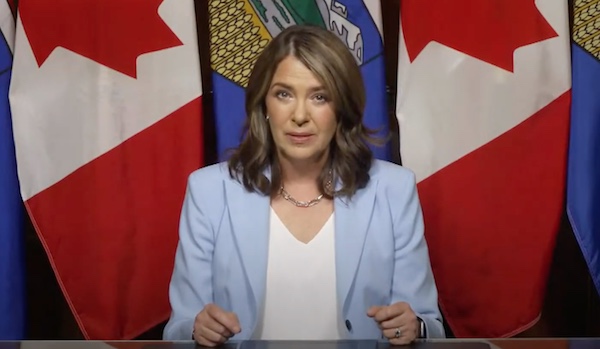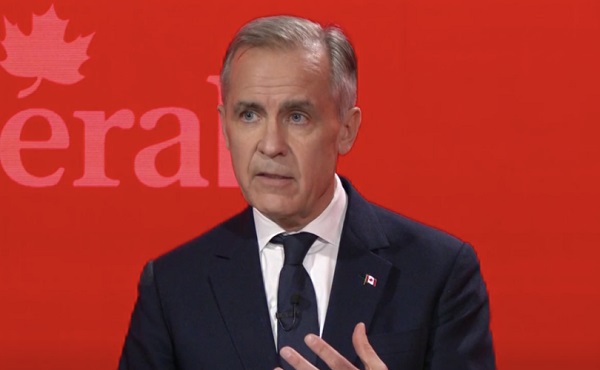Opinion
Dreeshen Talks Taxes And Electoral Reform
In Touch with MP Earl Dreeshen
Parliament has returned to session and in the next few months we will continue pushing forward with our priorities as the conservative caucus. Those priories are clear:
- To be the voice of the taxpayer.
- To continue to be the only party to oppose the Liberal agenda of uncontrolled spending and deficits that has already led to higher taxes.
- To hold the Liberals accountable for their misguided and risky economic plans.
Electoral Reform
On February 1, the Liberals indicated that they would be breaking his election promise that 2015 would be the last election held under our current system. Our party entered the discussion on changes to the electoral system with a principled position: that when you change the rules of democracy, everyone gets to have a say.
The Liberal government mishandled the electoral reform file from day one. With the process in tatters, our leader said late last year that it was time to set the discussion aside, and focus on the real priorities of Canadians. We are glad the government took our leader’s advice to park electoral reform. Our position remains that any change to the way we elect Members of Parliament must only be decided in a referendum.
Taxes Continue to Rise Under the Liberals
Since being elected on a platform of “cutting taxes for the middle class”, Justin Trudeau has continued piling new taxes onto Canadian families. He is bringing in a new carbon tax and a CPP tax hike. He already slashed tax-free savings accounts, and eliminated tax credits for kids’ soccer and dance classes, as well as textbooks. He’s even considering taxing Netflix. An idea the Liberals floated recently was to tax Canadians’ health and dental benefits. Given the visceral and widespread condemnation of the idea, it’s not surprising that Trudeau on Tuesday appeared to be backing away from it.
It’s time for Justin Trudeau to get serious about lowering taxes, especially as Donald Trump moves forward on a massive tax-cutting program in the United States.
Mobile Office Update
Our next Mobile Office will be in Sundre at the Greenwood Neighborhood Place on Tuesday February 7th from 10am-12 noon. Please feel free to bring any questions, comments or concerns to my staff at that time.
Sincerely your Member of Parliament,
Earl Dreeshen
Daily Caller
Misguided Climate Policies Create ‘Real Energy Emergency’ And Permit China To Dominate US


From the Daily Caller News Foundation
By Mariane Angela
Interior Secretary Doug Burgum warned on Fox Business Tuesday about America’s deepening energy shortfall and said that misguided climate policies could give China the upper hand in both the global energy race and artificial intelligence development.
House lawmakers voted 246-164, with support from 35 Democrats, to overturn a Biden-era EPA rule that lets California enforce a de facto national ban on gas-powered cars by 2035. During an appearance on “Kudlow,” Burgum said that U.S. energy shortfalls could allow China to outpace America in artificial intelligence and other power-hungry technologies.
“The real energy emergency that we have right now is that we don’t have enough energy in this country. We’re losing the AI arms race to China, and we’ve got to have more energy and more power right now in the country. And so that’s one of the things that we’re focused on right now,” Burgum told host Larry Kudlow.
Burgum blasted California’s aggressive emissions standards, which he said have effectively become national policy.
WATCH:
“Let’s start with California, Larry. That would be a great idea, because there’s 14 other states that followed California. So basically we’re stuck right now. Automakers feel like they’ve got to build two kinds of cars in America, one for California standards and one for the rest of the country,” Burgum said. “Of course, we know that the California standards are based on a bunch of falsehoods around emissions, because if we want zero carbon fuels, it’s much cheaper.”
Burgum took particular aim at electric vehicle subsidies, calling them a boondoggle built on climate ideology. He also called electric vehicle subsidies economically reckless since the cost of avoiding a single ton of carbon dioxide exceeds $900.
“It’s 10 to 15 times cheaper to have zero carbon liquid fuels than it is to subsidize EVs. The EV subsidies, where the real bank was, the thing that was really breaking the bank, over $900 for an avoided tonus of CO2, and all of that built around climate ideology,” Burgum said.
Republican Pennsylvania Rep. John Joyce introduced a resolution under the Congressional Review Act to stop California’s zero-emission vehicle mandate, which several other states have adopted. If the Senate doesn’t act, the Environmental Protection Agency would face a lengthy rulemaking process to reverse the policy that will allow California’s stricter standards to remain in effect for years.
The states that have opted in to California’s auto rules include Colorado, Delaware, Maryland, Massachusetts, New Jersey, New Mexico, New York, Oregon, Rhode Island, Vermont, Washington, and the District of Columbia.
Crime
Inside B.C.’s Cultus Lake Narco Corridor — How Chinese State-Linked Syndicates are Building a Narco Empire in Canada

Many of the properties of concern are large-acreage farms with cannabis licenses dating back decades—once controlled by B.C. biker gangs, but quietly consolidated since the early 2000s under the influence of figures linked to the Sam Gor syndicate.
Nestled in British Columbia’s Fraser Valley, hugging the U.S. border, Cultus Lake is surrounded by towering rainforest pines—a postcard image of Canada’s serene beauty. Shaped by the last Ice Age, the south shore’s cavernous ridges form the Columbia Valley, which snakes into Washington State—sparsely populated, with no official border crossing, and peopled mostly by large ranch owners. But the pristine corridor conceals deadly secrets with geopolitical consequences.
According to multiple Canadian intelligence experts, significant Columbia Valley properties have been quietly seized as strategic high ground by associates of the notorious Sam Gor narco syndicate, operating in tandem with agents of the Chinese state’s security and foreign influence apparatus.
“The number of people—nefarious people—who have places down there, it’s quite phenomenal,” an intelligence analyst not authorized to be named said.
“It’s a very difficult place to do any surveillance on. Not a lot of properties, big properties—and anybody that doesn’t have a local license plate or something from there, they just get spotted right away.” Combine that with its location—adjacent to the U.S. border—and, the source added, “it’s got to be some of the most favorable area in the Lower Mainland to be doing any kind of cannabis stuff or drug smuggling.”
Experts describe what amounts to a special zone of Chinese crime and influence activities—tied clandestinely to Beijing in function, if not officially—a secure enclave where key properties have been tied to covert cross-border helicopter operations.
Many of the properties of concern are large-acreage farms with cannabis licenses dating back decades—once controlled by B.C. biker gangs, but quietly consolidated since the early 2000s under the influence of figures linked to the Sam Gor syndicate. The networks tied to these estates, sources say, not only profit from cannabis and sophisticated money laundering brokerages that transfer illicit proceeds—ultimately benefiting the Chinese state—but are also linked to Beijing’s so-called “CCP police station” activities, and numerous significant investigations into fentanyl, methamphetamine, heroin, cocaine, and Chinese precursor imports.
According to one source familiar with U.S. government investigations in British Columbia, one Columbia Valley property stands out with exceptional urgency. Spanning roughly 30 acres and situated steps from the U.S. border, the estate has triggered alarms among The Bureau’s national security sources—not only due to its strategic location, but because of the individuals connected to it.
Chief among them: Sam Gor himself, the syndicate’s elusive boss, a Chinese Canadian named Tse Chi Lop. Of equal or greater concern: a senior Chinese security and intelligence figure with ties to Sam Gor’s upper command, and individuals associated with Chinese mining and chemical interests and Beijing’s United Front Work Department.
According to RCMP sources, the site has also been linked to numerous narcotics investigations in Western Canada and cross-border helicopter activity into Washington State—escalating it from regional concern to a geopolitical flashpoint between Ottawa and Washington.
Among other key figures linked to the property: Peter Lap-San Pang, a Toronto-based alleged Sam Gor associate named in a British Columbia civil forfeiture case involving a suspected illegal mansion casino; and Ye Long Yong, a convicted Sam Gor “kingpin” identified in Canadian court files for importing, exporting, and trafficking heroin, methamphetamine, and cocaine. During a parole hearing, Ye told officials that “a successful person in Toronto gave” him his drug business.
The parole records noted: “There was a great deal of effort from many police organizations from all around the world, with interpreters in several languages and evidence gathered for a long period of time in order to infiltrate and bring down Mr. YE’s criminal organization.”
Also tied to the property is a United Front–associated “Big Circle Boy” contemporary of Tse Chi Lop, who was named in B.C.’s anti-money laundering inquiry as the superior of Paul King Jin—the notorious boxing gym owner, loan shark, and money laundering suspect at the center of Canada’s largest-ever casino money laundering investigation, E-Pirate.
These are just several of the “many other Sam Gor members” associated with this 30-acre farm on the U.S. border, a source said—individuals who have surfaced repeatedly in B.C.’s highest-profile organized crime investigations over the past two decades, including the E-Pirate case.
Most of the Sam Gor and Chinese state-linked suspects tied to this particular Chilliwack-area border property—with the exception of Tse Chi Lop—remain less publicly known than Paul King Jin, whose notoriety has steadily grown since the Vancouver Sun’s 2017 revelations about the RCMP’s failed E-Pirate probe. Jin later survived a high-profile targeted shooting at Richmond’s Manzo restaurant in 2020—an attack that killed his business partner, Jian Jun Zhu, another Sam Gor leader allegedly behind the Silver International operation. That Richmond-based scheme—now infamous for revealing the “Vancouver Model” of money laundering—is believed to have moved hundreds of millions in drug proceeds through a combination of government-regulated and underground casinos, with links to drug-cash banks embedded in diaspora communities across the Western Hemisphere, including Mexico, South America, and hundreds of Chinese bank accounts.
More recently, The Globe and Mail reported troubling information—verified by The Bureau—that Canadian security officials had clandestinely surveilled Jin and other Chinese businessmen privately meeting with then–Prime Minister Justin Trudeau in a Richmond hotel, during the height of the E-Pirate and related Chinese narcotics trafficking investigations in British Columbia.
The U.S. government’s concerns about transnational money laundering suspects tied to this nexus—including individuals connected to Columbia Valley properties and the private meeting with Prime Minister Trudeau—were underscored by a request for RCMP assistance in surveilling several Chinese nationals who, according to one source, arrived in Vancouver on a private jet.
Yet while Jin drew headlines in Canada, Sam Gor leader Tse Chi Lop—who holds Canadian citizenship—operated far more quietly across Vancouver, Toronto, Hong Kong, Macau, Taiwan, mainland China, and the United States prior to his arrest in the Netherlands several years ago. He has long been identified as a top figure in what former U.S. State Department investigator David Asher describes as the “command and control” layer of Chinese Communist Party-linked money laundering in Toronto and Vancouver, facilitating the financial operations of Mexican, Latin American, and Chinese cartels across the Western Hemisphere.
“Tse [Chi Lop] has a long history here [in British Columbia],” one Canadian intelligence expert said. “He’s connected to Jin and the network out here.” Regarding the elite Sam Gor members associated with significant Columbia Valley properties, they added: “There’s state interaction with some key components of those groups.”
One of the key figures associated by Canadian intelligence with the 30-acre Columbia Valley farm, Ye Long Yong, is also little known outside elite international law enforcement circles. But his role in Sam Gor’s transnational operations from Vancouver was extremely significant, an intelligence source said. Filings from his parole hearings underscore this, stating: “Mr. YE operated his criminal organization for years prior to his arrest. He demonstrated his ability to conceal his illegal activities from the authorities for many years.”
Pointing to yet another high-profile property near Cultus Lake, a different source said: “There’s another very, very significant Asian organized crime woman—she had a heavy influence out in that area, to do with cannabis. And she apparently had a lot of higher-level Chinese government connections.”
Another source, familiar with a federal investigation involving an organized crime figure flying a helicopter from the Cultus Lake region into U.S. territory, emphasized long-standing frustrations between allied agencies. “With the choppers and this area around Cultus Lake, I don’t think the Border Integrity team at Federal Serious and Organized Crime has ever truly continued paying attention,” the source said. “That’s why DEA and others are so pissed with the RCMP—not truly following up, not looking at the details. That corridor has been known for years.”
For Canadian intelligence veterans watching the pattern, the explanation points to more than simple organized crime. “This is for years to come,” one source said. “You set things in place in environments you can monitor, inside and out. Thinking like special forces—you pick the high ground, the environment where you can survey everything around you to maintain the integrity and safety of your product. That’s why the corridor is so special to organized crime. You can do that there.”
While these properties—and the alleged helicopter missions they support into the United States—offer a visceral glimpse of the threat posed by Chinese transnational networks engaged in poly-narcotics trafficking and money laundering, the deeper, state-linked financial architecture behind them is best illustrated by the RCMP’s startling findings. Investigators uncovered a global laundering network rooted in Vancouver-area brokerage houses, discreetly embedded in residential neighborhoods. These firms are tied to large-acreage land acquisitions across British Columbia used to cultivate cannabis for Asian organized crime.
Beneath the surface, authorities believe these operations fuel a broader system of poly-drug laundering, narcotics transshipment to other nations concealed within Canadian consumer exports, and coordination with Beijing’s foreign influence apparatus.
The Bureau will report next in this series on a groundbreaking investigation into the United Front brokerage system—an apparatus that facilitated narcotics trafficking from British Columbia into New York City and laundered drug proceeds from the United States back to Sam Gor and United Front networks in Vancouver.
There is mounting evidence that this same system—leveraging “legal” cannabis operations and money laundering brokerages tied to crime figures associated with Chinese consulate diplomats—is now suspected of operating not only in British Columbia but also in Ontario, with transnational reach into multiple U.S. states, including Maine.
Yet only fragments of evidence in official Canadian files hint at the “interoperability” between Chinese narco networks and the United Front Work Department, including its political influence arms.
British Columbia and Ontario have emerged as key battlegrounds where Chinese interference and triad-linked organized crime networks have deeply penetrated society. According to Canadian and U.S. experts who spoke with The Bureau, this includes the integration of the Sam Gor syndicate with Beijing’s intelligence and foreign influence apparatus, operating under the umbrella of the United Front Work Department.
Due to the sensitivity of the matter, the only expert identified in interviews is David Asher, who stated that the U.S. government views the United Front as the envelope surrounding China’s underground banking and financial networks—the same networks believed to have infiltrated TD Bank in Toronto.
Multiple Canadian police sources across British Columbia, Alberta, and Ontario confirmed that Chinese diplomats have been observed meeting with senior figures in Asian Organized Crime, including actors tied to the 30-acre “farm” property on the U.S. border near Cultus Lake.
The only known record pointing to official Canadian acknowledgment of these networks was first obtained by Global News in its reporting on Beijing’s Fox Hunt operations. The document—drafted at the request of B.C.’s Solicitor General in 2023—prompted the RCMP to prepare a classified briefing for Premier David Eby’s government. The version released under Freedom of Information legislation was completely redacted and titled: “The People’s Republic of China: Foreign Actor Influence Undertaken by the Chinese Communist Party / United Front Work Department & Interoperability with Transnational Organized Crime.”
Editor’s note: Come back to read The Bureau’s exclusive, paywalled investigation into United Front brokerage houses and illicit grow-ops—operations powered by exploited illegal immigrants.
The Bureau is a reader-supported publication.
To receive new posts and support my work, consider becoming a free or paid subscriber.
Invite your friends and earn rewards
-

 Alberta4 hours ago
Alberta4 hours agoPremier Smith seeks Alberta Accord: Announces new relationship with Ottawa
-

 Energy3 hours ago
Energy3 hours agoIt’s time to get excited about the great Canadian LNG opportunity
-

 Crime2 hours ago
Crime2 hours agoInside B.C.’s Cultus Lake Narco Corridor — How Chinese State-Linked Syndicates are Building a Narco Empire in Canada
-

 Energy6 hours ago
Energy6 hours agoIs the Carney Government Prepared to Negotiate a Fair Deal for the Oil, Gas and Pipeline Sectors
-

 Health7 hours ago
Health7 hours agoJay Bhattacharya Closes NIH’s Last Beagle Lab
-

 Business8 hours ago
Business8 hours agoWelcome to Elon Musk’s New Company Town: ‘Starbase, TX’ Votes To Incorporate
-

 Daily Caller34 mins ago
Daily Caller34 mins agoMisguided Climate Policies Create ‘Real Energy Emergency’ And Permit China To Dominate US
-

 Business1 day ago
Business1 day agoFrom ‘Elbows Up’ To ‘Thumbs Up’



